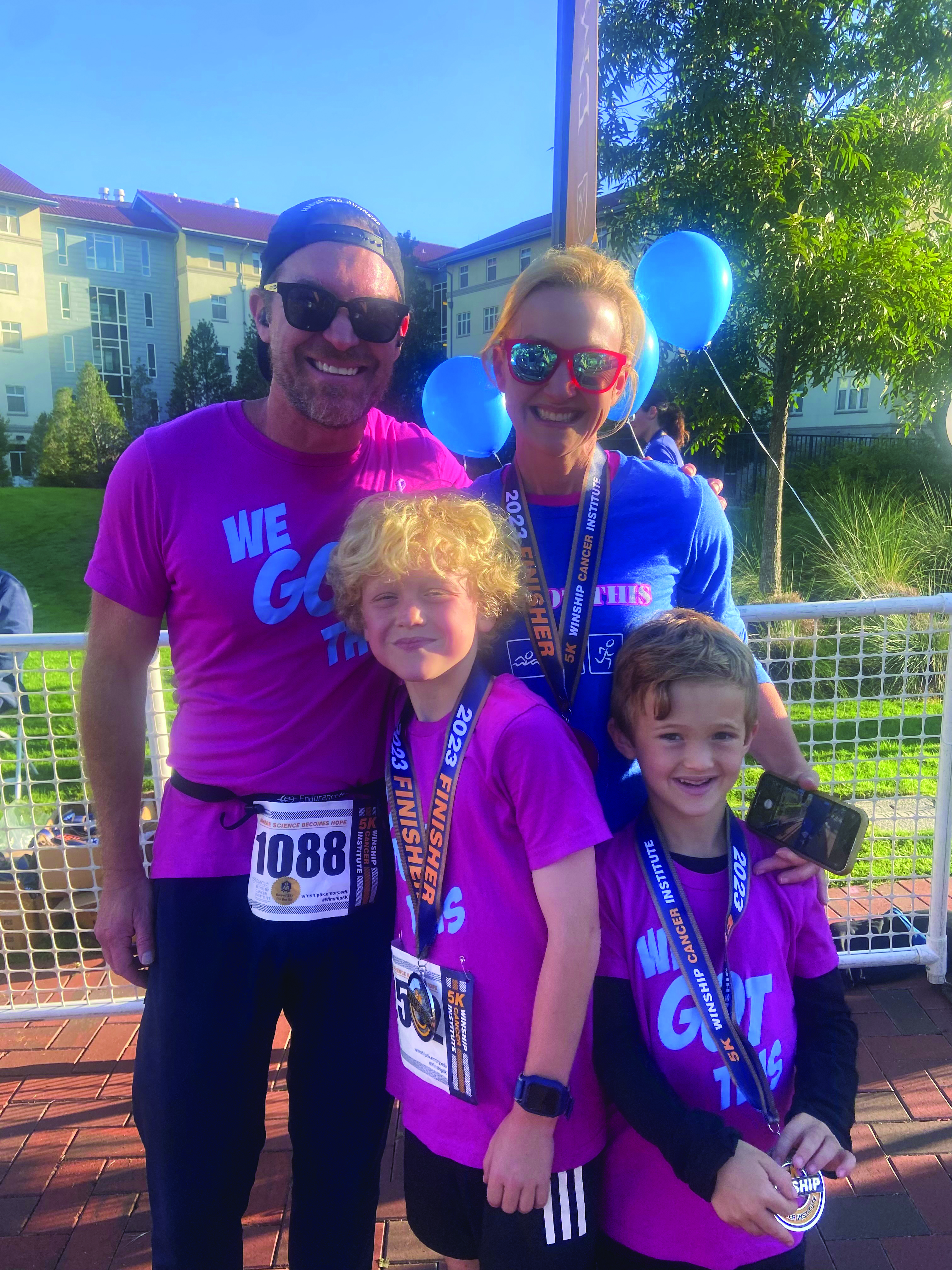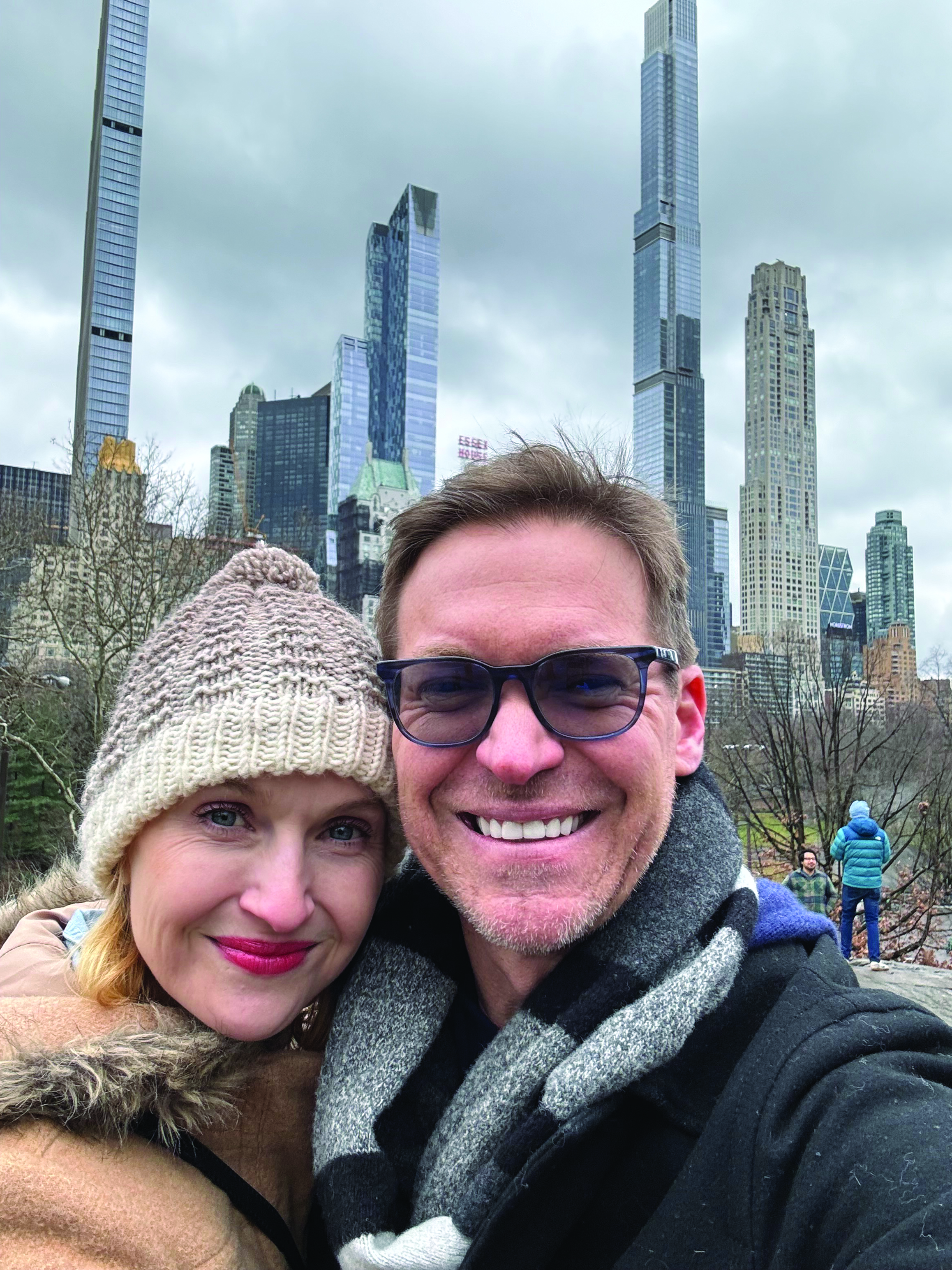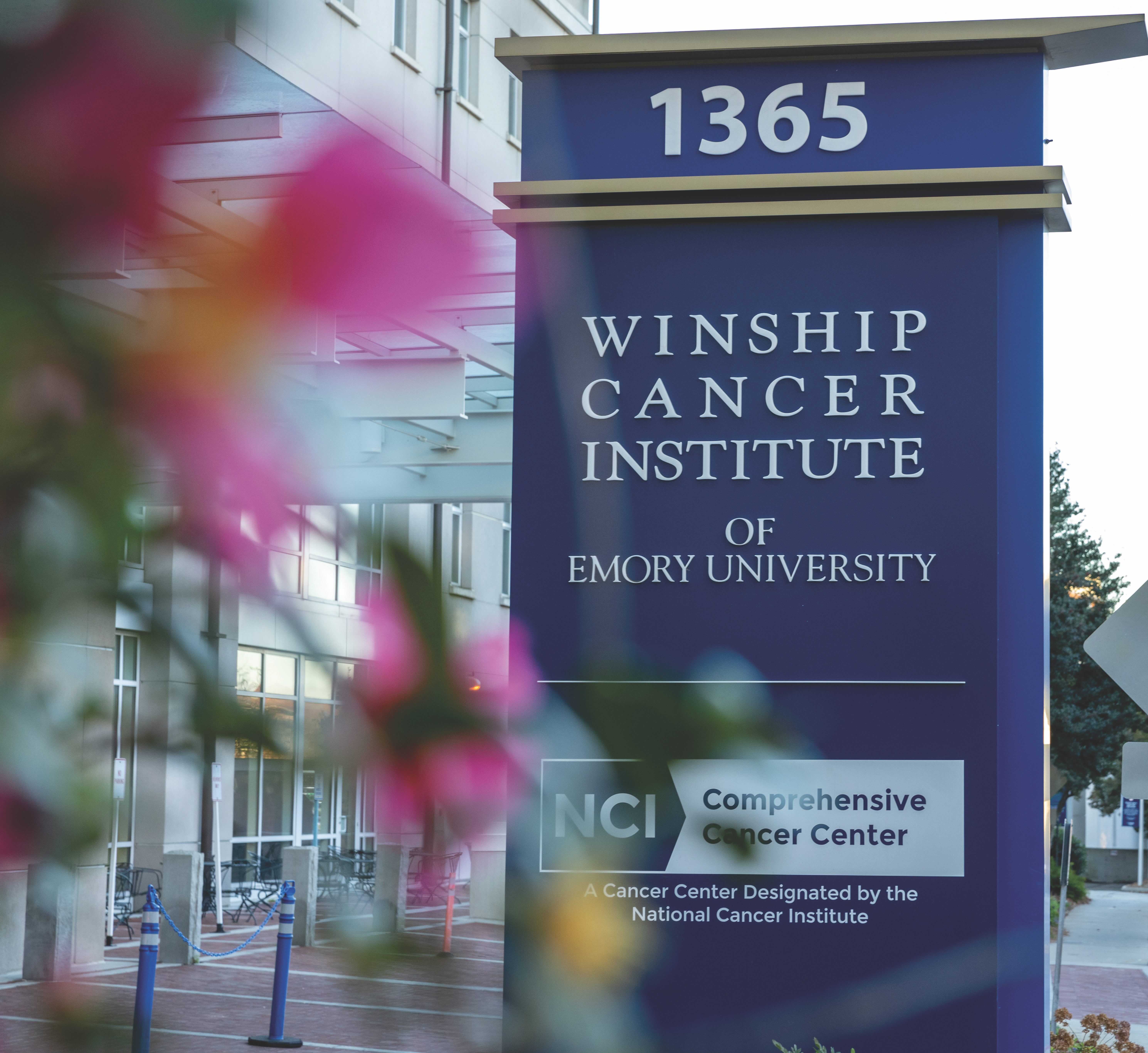Finding Hope and Inspiration: Taking on Unexpected Roles as Patient and Caregiver

Photo Courtesy Ames Family
But just before their 10th wedding anniversary, Liz was diagnosed with a rare and aggressive appendiceal cancer.
“I was a very healthy person, always very skinny, and I started to feel distended,” says Liz. She went to a hospital where the doctor thought nothing was wrong. “But because I was an advocate for myself, which I’ve learned you absolutely have to be, I demanded a CT scan.” The CT scan results showed appendiceal cancer, which affects just one or two people out of a million each year in the US. After extensive research, the couple found Charles Staley, chief of the division of surgical oncology at Emory’s Winship Cancer Institute and Holland M. Ware Professor of Surgery at Emory School of Medicine. A specialist in gastrointestinal cancers (GI), Staley’s clinical practice focuses on the surgical treatment of stomach, esophageal, appendiceal, colorectal, and peritoneal surface malignancies. His research focuses on translational studies and novel clinical trials in GI cancers. “He did a masterful job of making us feel as comfortable as possible,” Matt says. “His confidence was inspiring.”

"I realized that if I was going to be any good to Liz and the boys, I needed to focus on myself."
Matt, Liz’s husband and caregiver
Matt’s role as caregiver, however, was less clear. One day, Liz turned to her husband and said, “I wouldn’t want to be in your shoes.”
Sharing the caregiver journey
Matt decided to share his family’s cancer journey in Through the Impossible: Lessons in Caregiving from a Husband Who’s Been There. A few of his suggestions:
Take care of yourself. Work, doctors’ appointments, and being present for his family took a toll on Matt— physically, mentally, and emotionally. One day he received a note from a friend reminding him to take care of himself. He began finding time for himself every day, even just 15 minutes, to work out, talk with his rabbi, or connect with his parents.
Find support. Matt’s rabbi introduced him to a young dad in a similar situation. “This connection has become deeply meaningful to me,” Matt says. “He has shared insights and encouragement that only someone in the shoes of a caregiver could provide.”
Practice gratitude. The couple remained hopeful throughout their difficult experience. The family sets aside time every Friday to reflect and be grateful. In times of crisis, it may be difficult to find gratitude, but Matt urges caregivers to take time to be thankful for even the small things that once seemed unimportant.
Liz is now five years post-cancer diagnosis, and her disease remains in remission. “I’m soaking up every minute,” says Liz.
The family is grateful for the support of friends, family, and Winship. Their physician and nurses remain at the top of their gratitude list.
Staley recognizes the importance of his role as both a surgeon and supporter. “At Winship, we understand that cancer is a family disease,” he says.
Liz's Story
 Winship Family Resources
Winship Family Resources

Winship offers resources to support cancer patients and caregivers throughout diagnosis, treatment, and recovery.
Wendy Baer, director of psychiatric oncology, and a team of social workers provide resources and a chance for families to focus on their mental and emotional well-being.
Patients and caregivers also can access support from Winship’s spiritual health group. The team works across Emory Healthcare to bring spiritual comfort and compassionate support. “It is important for caregivers to have their own resources so that they can tend to their spiritual and emotional needs,” says Caroline Peacock, director of spiritual health at Winship.
Winship Cancer Institute offers a caregiver support group that meets virtually on the third Wednesday of each month from noon to 1:30 p.m. RSVP to hilary.cohen@emoryhealthcare.org, or 404.778.4627.
Email the Editor







